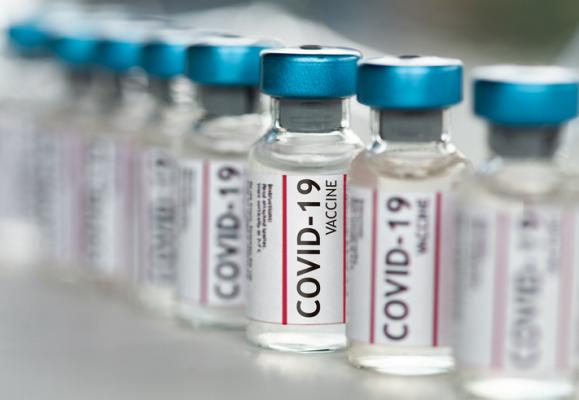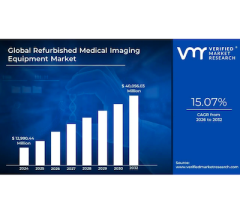
Getty Images
January 8, 2021 — The U.S. Food and Drug Administration is alerting clinical laboratory staff and healthcare providers that the FDA is monitoring the potential impact of viral mutations, including an emerging variant from the United Kingdom known as the B.1.1.7 variant, on authorized SARS-CoV-2 molecular tests, and that false negative results can occur with any molecular test for the detection of SARS-CoV-2 if a mutation occurs in the part of the virus’s genome assessed by that test. The SARS-CoV-2 virus can mutate over time, like all viruses, resulting in genetic variation in the population of circulating viral strains, as seen with the B.1.1.7 variant. The FDA is taking additional actions to ensure authorized tests remain accurate by working with test developers and conducting ongoing data analysis to evaluate all currently authorized molecular tests. The FDA believes the risk that these mutations will impact overall testing accuracy is low.
“The FDA will continue to monitor SARS-CoV-2 genetic viral variants to ensure authorized tests continue to provide accurate results for patients,” said FDA Commissioner Stephen M. Hahn, M.D. “While these efforts continue, we are working with authorized test developers and reviewing incoming data to ensure that health care providers and clinical staff can quickly and accurately diagnose patients infected with SARS-CoV-2, including those with emerging genetic variants. At this time, we believe the data suggests that the currently authorized COVID-19 vaccines may still be effective against this strain. The FDA will continue to keep health care providers and the public informed of any new information as it becomes available.”
The FDA has been monitoring SARS-CoV-2 viral mutations, and potential impact on testing, throughout the pandemic. The presence of SARS-CoV-2 genetic variants in a patient sample can potentially change the performance of a SARS-CoV-2 test. Tests that rely on the detection of multiple regions of the genome may be less impacted by genetic variation in the SARS-CoV-2 genome than tests that rely on detection of only a single region.
Three currently authorized molecular tests, MesaBiotech Accula, TaqPath COVID-19 Combo Kit, and Linea COVID-19 Assay Kit, may be impacted by genetic variants of SARS-CoV-2, but the impact does not appear to be significant. Importantly, the detection pattern that appears with the TaqPath and Linea diagnostic tests when certain genetic variants are present may help with early identification of new variants in patients to reduce further spread of infection. The recently identified B.1.1.7 variant has been associated with an increased risk of transmission, therefore early identification of this variant in patients may help reduce further spread of infection.
The FDA has reminded clinical laboratory staff and health care providers about the risk of false negative results with all laboratory tests, including molecular tests. Laboratories should expect some false results to occur even when very accurate SARS-CoV-2 tests are used. Today’s announcement also provides important information and recommendations for clinical laboratory staff and health care providers who use molecular tests for the detection of SARS-CoV-2.
The FDA will continue to communicate with the public as it has additional information to share. The FDA encourages stakeholders to report any adverse events or suspected adverse events experienced with molecular tests for detection of SARS-CoV-2. Voluntary reports can be submitted through MedWatch, the FDA Safety Information and Adverse Event Reporting program. Health care personnel and clinical laboratory staff employed by facilities that are performing COVID-19 testing should follow the reporting requirements for authorized laboratories as specified in the test’s Emergency Use Authorization. Prompt reporting of adverse events can help the FDA identify and better understand the risks associated with medical devices.
For more information: www.fda.gov
Related Radiology Coronavirus Coverage:
COVID-19 Genetic PCR Tests Give False Negative Results if Used Too Early
How Does COVID-19 Appear in the Lungs?
CT Provides Best Diagnosis for Novel Coronavirus (COVID-19)
CT Imaging of the 2019 Novel Coronavirus (2019-nCoV) Pneumonia
Radiologists Describe Coronavirus CT Imaging Features
Chest X-rays in the ER Can Help Predict Severity of COVID-19 in Younger Patients
Radiology Lessons for Coronavirus From the SARS and MERS Epidemics
Lungs of Deceased COVID-19 Patients Show Distinctive Features
Study Looks at CT Findings of COVID-19 Through Recovery
Chest CT Findings of Patients Infected With Novel Coronavirus 2019-nCoV Pneumonia
ACR Recommendations for the Use of Chest Radiography and CT for Suspected COVID-19 Case
New CT Scoring Criteria for Timely Diagnosis, Treatment of Coronavirus Disease
New Study Looks at Post-COVID-19 Emerging Disease in Children
New Research Finds Chest X-ray Not Reliable Diagnostic Tool for COVID-19
Radiology Publishes First Case of COVID-19 Encephalopathy
How COVID-19 Affects the Brain in Neuroimaging
How Radiologists are Analyzing the 2019-nCoV Coronavirus Pneumonia Epidemic
New Research Advocates for Chest CT in COVID-19 Diagnosis
Shortage of PPE Due to COVID-19 Driving Innovation by RT in The Philippines
Chest CT Can Distinguish Negative From Positive Lab Results for COVID-19
Artificial Intelligence Assisted Radiology Technologies Aid COVID-19 Fight in China
Mount Sinai Physicians the First in U.S. Analyzing Lung Disease in Coronavirus Patients from China


 February 13, 2026
February 13, 2026 









